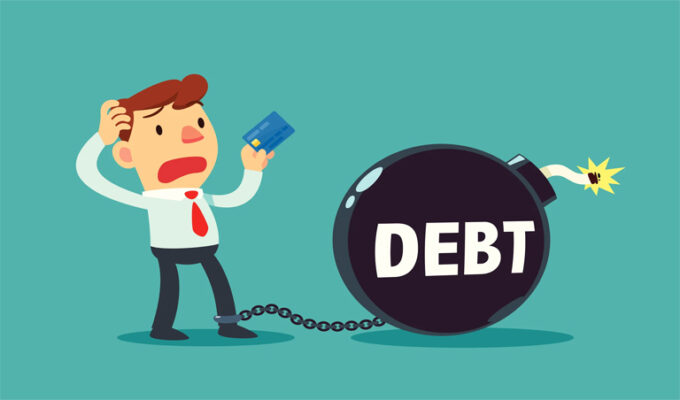
Is “Good” the Right Adjective to Describe a Debt?
Debt is debt. It cannot be good or bad. However, some of you may say that debt is bad as you are under constant threat of being broke if you fail to keep up with repayments. However, some people have a different mindset and treat debt as favourable as they can. Well, it is quite hard to conclude if a debt is good or bad. It depends on which side of the coin you look at.
For instance, some will find debt acceptable because timely repayments have led to their credit scores go up while others will find them wrong because they have lost their credit scores. It can be quite hard to differentiate between good debt and bad debt because it all depends on your perspective and current financial condition, despite that this blog has revealed the difference between both types of debt.
Which debts are called good debts?
Good debt is one that you use to buy an asset that grows in value over time provided you do not fail to pay off the money you borrowed, or it is any money you borrow to fund your planned or unexpected expenditure without risking your sound financial condition. Here are some of the examples of good debt:
- Student loans
Student loans can be thought of good debt because you will likely get a good job after the completion of your course. Further, unlike other debts, you do not have to pay down the debt as immediately as you take out. These loans are generally income-contingent loans, which means you will start paying down the debt after you start earning money.
- Debt consolidation loans
Debt consolidation loans for bad credit are also considered good debts because they allow you to get rid of multiple debt repayments. You can consolidate all your high-interest debts into a large one. Now you will pay off the new debt in fixed instalments. This will not only make repayments more comfortable and more manageable but also improve your credit rating.
- Instalment loans
As the name suggests, instalment loans require you to pay off the debt in fixed monthly instalments, and this is what makes them good debts. You don’t need to have to borrow a large sum of money; in fact, a £1000 loan from direct lenders can fulfil your purpose. Whether you are borrowing a small amount or large amount, instalment loans can build your credit rating.
- Medical debts
Medical debts can also be treated as good debt because they allow you to fund your medical bills at affordable interest rates.
Which debts are called bad debts?
Debt becomes bad when you borrow money to buy things you do not need or at very high-interest rates. Here are some of the examples of bad debts:
- Credit card debt
It seems very easy to swipe a card and make a purchase, but credit cards are more expensive than other short-term debts. They carry very high-interest rates in case you fail to pay off the debt within the interest-free period. If you do not assess the amount of your purchase, you will likely end up with a debt trap.
- Payday loans
Payday loans are the worst loans, and there is no doubt that these loans are bad. They carry very high-interest rates. APR can go over 500%. It seems you can quickly pay down the debt, but you end up rolling over the loan when the due date comes. Payday loans are notorious for tying you with a debt trap.
- Auto loans
Auto loans can also be considered a bad loan as long as you are funding with hire purchase or personal contract purchase agreement. Not only will you pay down a deposit size, but you will also pay down add-on costs.
With personal contract purchase, you will have to look after mileage and normal wear and tear because it will keep adding up the cost. It means you will end up paying twice or thrice the market value of the car.
Well, debt can be either good or bad. It depends on your perception. As long as a debt is manageable, you will say it good debt.

Ailsa Adam is the Editor-in-Chief and former content head at Hugeloanlender. She has been a valuable member of the content strategy team since 2017 due to her abundant experience in the finance sector. Passionate about helping individuals navigate the world of loans and personal finance, she has dedicated herself to acquiring extensive knowledge on various financial products. Before her role at Hugeloanlender,
Ailsa worked as a seasoned journalist and writer, specialising in creating informative blogs and articles on diverse loan types. She is known for her meticulous research and commitment to delivering accurate and engaging content. She holds a degree in MBA Finance and has a keen interest in creative writing and art.




